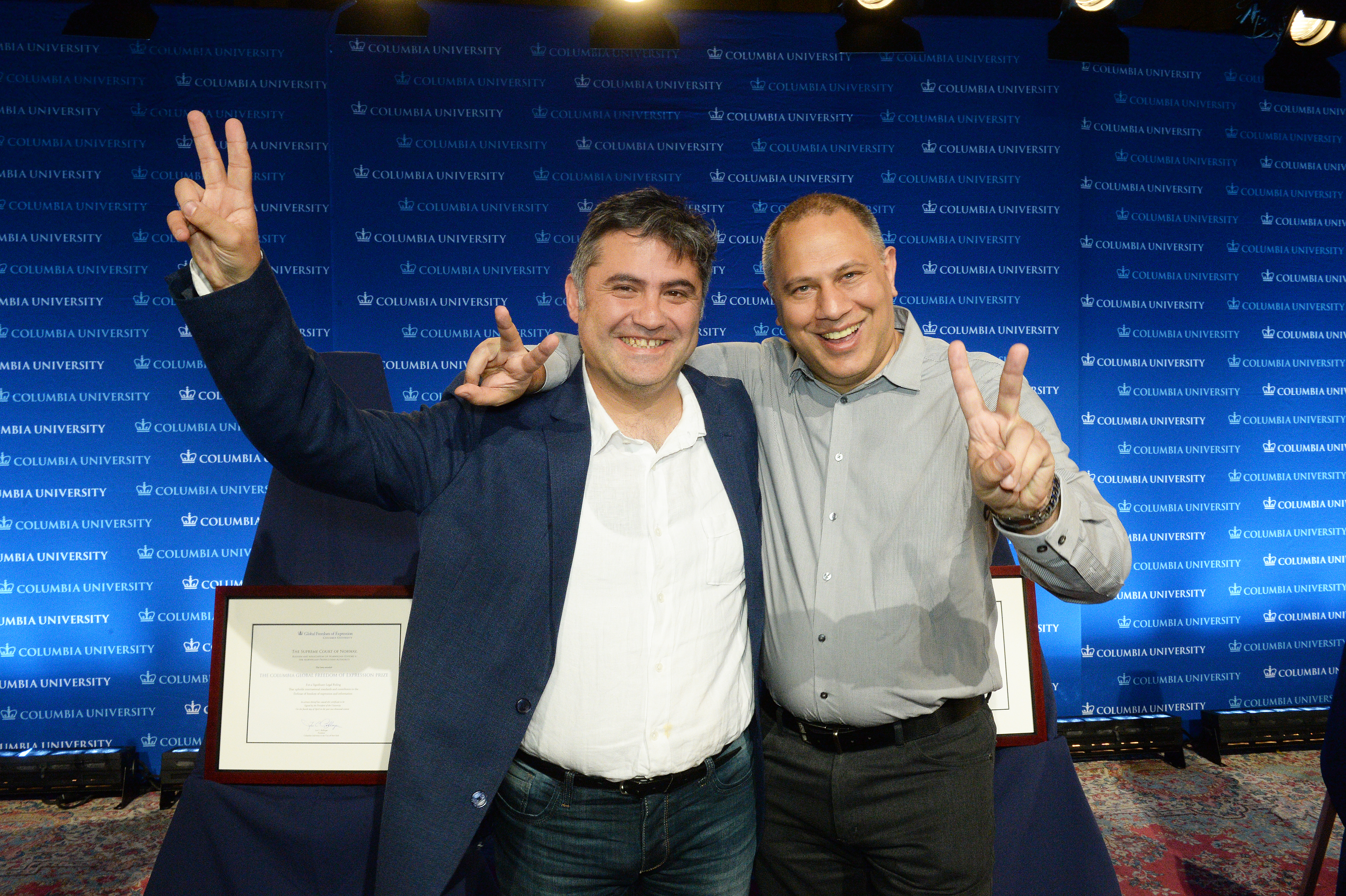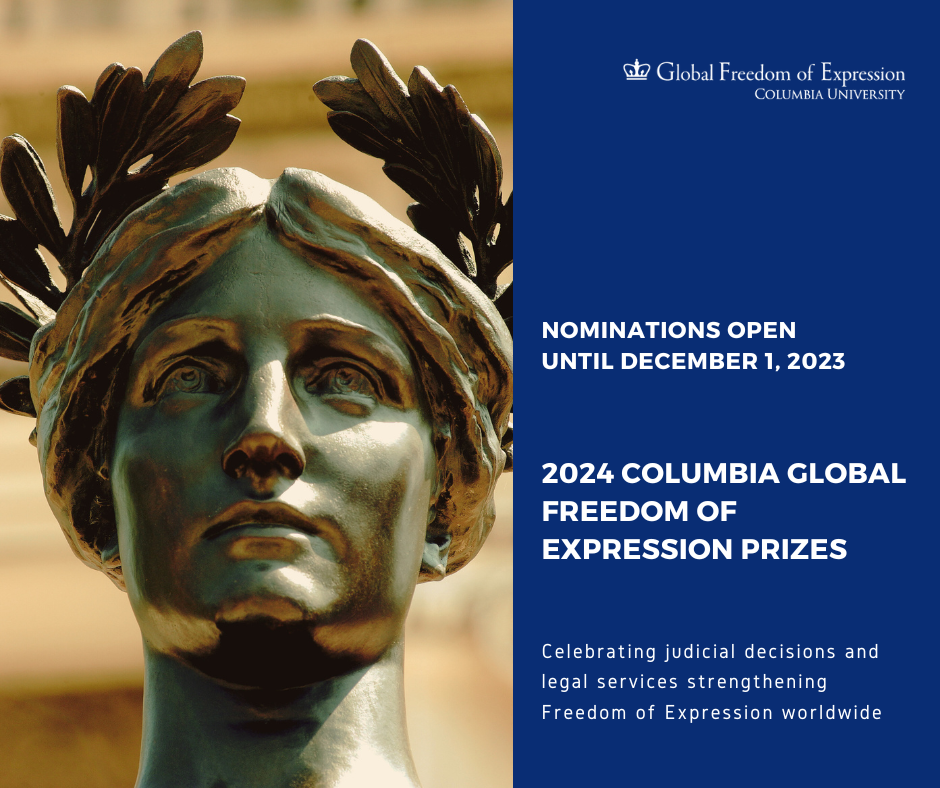2024 Columbia Global Freedom of Expression Prizes
Nominations Are Now Closed
“When seeking justice for atrocious crimes, there are very few moments of joy. Receiving this award today from one of the most prestigious universities in the world is one of those moments. It fills us with joy and strength to continue doing the work that we do: defending rights to change realities.”
Viviana Krsticevic, CEJIL
We are awarding the 2024 Prizes in Two Categories
Significant Legal Ruling: the prize shall recognize a judgment or decision rendered anywhere in the world that has advanced or strengthened a global understanding and international standards of Freedom of Expression and Information. While decisions from any year may be nominated, priority will be given to recent decisions, most notably those rendered in 2022 and 2023.
Excellence in Legal Services: the prize shall recognize a legal brief, legal amicus brief or legal defense presented anywhere in the world that has advanced or strengthened a global understanding and international norms of Freedom of Expression and Information. While legal services from any year may be nominated, priority will be given to recent legal services, most notably those rendered in 2022 and 2023.
What we consider in selecting the winners

2016 winners Kerem Altiparmak, Director of Human Rights Centre, Faculty of Political Sciences, Ankara University and Yaman Akdeniz, Professor of Law, Istanbul Bilgi University. Photo Credit: Eileen Barroso / Columbia University
- The decision or legal service must demonstrate sound legal reasoning and have advanced the legal understanding of the issues under consideration.
- The decision or legal service must make a significant contribution to the protection of freedom of expression or information.
- The decision or legal service must demonstrate a global understanding of freedom of expression and information. This could be demonstrated by listing laws, standards, policies, or decisions regarding freedom of expression that have been referenced in the brief, amicus, or publication. The listed references may be international, regional, and/or originating from other jurisdictions.
In addition, all nominees in the Legal Service Category must have established a reputation for integrity and a commitment to human rights, rule of law, and legal excellence.
We are inviting nominations from jurists and other legal experts, academics, and non-governmental organizations actively engaged in protecting freedom of expression and information, including self-nomination.
Nomination Resources
- Nomination Form
- Formulario de nominación en Español
- Formulaire de candidature en Français
- Formulário em Português
- Prizes Website
- Prize Rules
- 2022 Prize winners
- 2018 Prize Winners
- 2016 Prize Winners
- 2015 Prize Winners
Important Dates
- December 1, 2023 – Nominations Close
- December 2, 2023 to February 28, 2024 – Nominations Review Period
- April 2024 – Winners are Announced
Prize Committee
- Agnès Callamard, Secretary General, Amnesty International; Former Director, Columbia Global Freedom of Expression
- Catalina Botero Marino, Director, UNESCO Chair on Freedom of Expression at the Universidad de Los Andes; Co-chair, Oversight Board of Facebook and Instagram; Former Consulting Director, Columbia Global Freedom of Expression
- David Kaye, Clinical Professor of Law, University of California, Irvine; Former UN Special Rapporteur on the promotion and protection of the right to freedom of opinion and expression
- Barbora Bukovská, Senior Director for Law and Policy, ARTICLE 19, UK
- Dario Milo, Attorney and Partner, Webber Wentzel, Johannesburg, Republic of South Africa
- Karuna Nundy, Advocate, Supreme Court of India; International human rights lawyer, India

